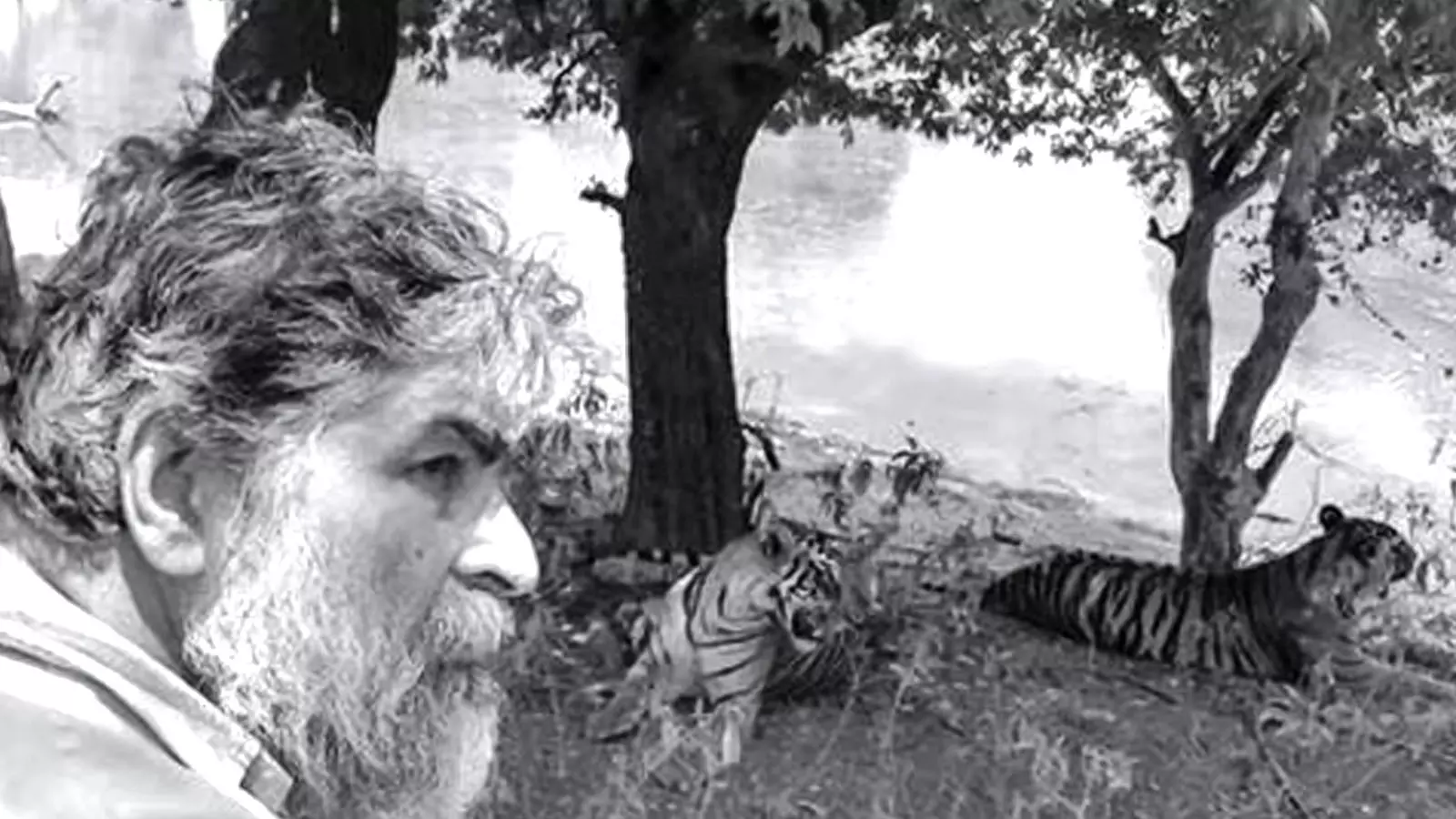
Valmik Thapar, the man who chronicled India's Tigers, passes away
Thapar dedicated his life to the study and conservation of tigers, particularly in Rajasthan's Ranthambore National Park

Valmik Thapar, a towering figure in the field of tiger conservation in India, passed away at the age of 73 at his Kautilya Marg residence in New Delhi on Saturday morning (May 31). According to reports, he was diagnosed with cancer last year.
Thapar was born in New Delhi in 1952, to Romesh and Raj Thapar, journalists and co-founders of the political journal Seminar. He is survived by his wife, Sanjana Kapoor and son, Hamir Thapar.
He dedicated his life to the study and conservation of tigers, particularly in Rajasthan's Ranthambore National Park. He co-founded the Ranthambhore Foundation in 1988, a non-governmental organisation focused on community-based conservation efforts.
Early life and education
Thapar's father, Romesh Thapar, was a well-known journalist. His aunt is historian Romila Thapar, and his cousin is journalist Karan Thapar.
He studied at The Doon School and later graduated with a gold medal in sociology from St Stephen’s College, Delhi University.
Thapar married theatre artist Sanjana Kapoor, daughter of actor Shashi Kapoor, and they have a son.
Thapar was mentored by Fateh Singh Rathore, a legendary figure in Indian conservation and a key member of the original Project Tiger team.
Also Read: Rajaji Park emerges from the shadows of Corbett Tiger Reserve. Finally
How it all started?
He entered the world of tiger conservation in 1976 after meeting Fateh Singh Rathore, then director of the Ranthambhore Tiger Reserve in Rajasthan, which sparked his lifelong passion for the conservation of the majestic big cats.
With their shared passion, Rathore and Thapar formed a lasting collaboration that inspired and influenced the tiger conservation policy in the country. Till his last days, Thapar remained passionate about tiger conservation.
Also Read: Why tiger Rajmata is getting a memorial in Rajasthan
Ranthambhore Foundation
He set up the Ranthambhore Foundation, a non-profit organisation, in 1987 with the objective of roping in local communities into conservation activities.
Thapar, who had been part of more than 150 government panels and task forces, including the National Board for Wildlife, led by the prime minister, was appointed a member of the Tiger Task Force, set up by the UPA government to review the management of tiger reserves following the disappearance of tigers from Sariska Tiger Reserve in 2005.
Thapar submitted a dissent note stating that the report was overly optimistic about the coexistence of tigers and humans.
Authored books, made docus
Thapar wrote or edited more than 30 books on wildlife, including Land of the Tiger: A Natural History of the Indian Subcontinent (1997), and Tiger Fire: 500 Years of the Tiger in India.
He also presented and co-produced several well-known films for channels like the BBC.
One of his more famous works was a six-part series "Land of the Tiger" (1997), which explored the nature and wildlife of the Indian subcontinent.
In 2024, he appeared in the documentary "My Tiger Family," which showcased his 50 years of observing wild tigers in Ranthambore National Park.
Also Read: A tiger too many? The big cat in India walks into unchartered territory
Slammed Project Cheetah
Never hesitating to speak his mind, Thapar had no qualms in expressing his reservation against the much-hyped Project Cheetah, the Centre’s initiative to reintroduce African cheetahs into the wild. He said that there was a lack of necessary habitat or prey base to support free-ranging cheetahs in the country adding that the authorities lacked experience in managing spotted felines in the wild.
Tributes pour in
Tributes poured in for the conservation icon. Senior Congress leader and former Union Health Minister recalled his long conversations on tiger conservation with Thapar adding that almost always he was on the receiving end.
"Today's Ranthambore, particularly, is a testimony to his deep commitment and indefatigable zeal. He was uncommonly knowledgeable on a variety of issues relating to biodiversity, and not a day passed during my Ministerial tenure without our talking to each other, with me almost always at the receiving end," Ramesh posted on X.
Wildlife conservationist Nirmal Ghosh remembered him as "a giant of tiger conservation" who leaves behind "a lasting legacy as a global spokesman for the tiger."
With Agency inputs

